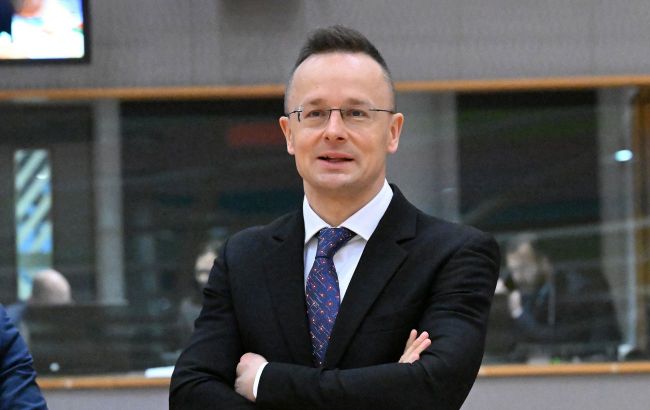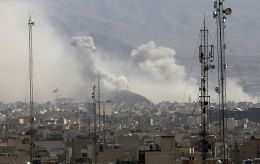Szijjártó accuses EU of trying to topple three governments
 Photo: Hungarian Foreign Minister Péter Szijjártó (Getty Images)
Photo: Hungarian Foreign Minister Péter Szijjártó (Getty Images)
Hungarian Foreign Minister Péter Szijjártó, against the backdrop of protests in the Serbian capital, made accusations against the European Union. Szijjártó claimed that the EU allegedly wants to overthrow the governments of three countries — Hungary, Serbia, and Slovakia.
Specifically, Szijjártó stated that Brussels has allegedly ceased to "be a factor in global politics." As evidence, the Hungarian minister cited the fact that EU representatives were not invited to the talks in Alaska.
The close ally of Hungarian Prime Minister Viktor Orbán also wrote that, as a result, pressure has increased on governments that "support peace, national interests, and do not submit to Brussels." In his view, these are the governments of Hungary and Slovakia (pro-Russian regimes - ed.), as well as the government of Serbia.
"Today it is clearer than day that experiments of external interference aimed at destabilization and government overthrow are taking place in Central Europe against the patriots of the Slovak, Hungarian, and Serbian governments," he said.
Szijjártó added that European Commission President Ursula von der Leyen allegedly openly supports the Tisa Hungarian opposition party, and that the protests in Serbia during the night of August 13–14 are, supposedly, a direct consequence of Brussels’ actions.
"Today I spoke by phone with my Serbian colleagues Juraj Blanar and Marko Đurić, with whom we agreed that, in the face of harsh attempts at external interference, we must defend our sovereignty and peace even more strongly. We confirmed that we can count on each other’s solidarity in this," the Hungarian minister concluded his post.
Protests in Serbia
Throughout the night of August 13–14, large-scale anti-government protests took place in Serbia. In the capital, Belgrade, and several other cities, police special forces harshly dispersed the demonstrators.
Student protests in Serbia began in November after a canopy at the railway station in the northern city of Novi Sad collapsed, killing 16 people. This sparked widespread accusations of corruption in state infrastructure projects.
Despite repeatedly labeling the protesters as "terrorists," the government was forced to launch an investigation into the Novi Sad tragedy. Recently, a Serbian court arrested 13 people involved in the case concerning the collapsed canopy, including two former ministers.

